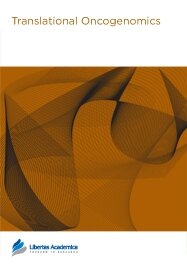

Publication Date: 10 Feb 2008
Journal: Translational Oncogenomics
Citation: Translational Oncogenomics 2008:3 23-37

Boston University School of Medicine, Cancer Research Center, Boston, MA, U.S.A.
Abstract
Tumor formation results from alterations in the normal control of cell proliferation. In the past decade, much attention in cancer research has been focused on the function of proto-oncogenes and tumor suppressors. Prohibitin is a potential tumor suppressor which was originally identifi ed because of its anti-proliferative activities. Subsequent investigations led to the discovery of prohibitin mutations in sporadic breast cancers. Recent studies established that prohibitin directly regulates E2F-mediated transcription and growth suppression Prohibitin further attracted the attention of the translational cancer research community when it was recently connected to the regulation of estrogen receptor and androgen receptor activity. Prohibitin was shown to be required for the growth suppression of breast cancer cells induced by estrogen antagonists, and for therapeutic responses to androgen antagonists in prostate cancer. Through the application of new molecular technologies, additional novel functions of prohibitin have been revealed, demonstrating diverse and essential roles of this highly-conserved protein in regulating cell growth.
PDF (582.57 KB PDF FORMAT)
RIS citation (ENDNOTE, REFERENCE MANAGER, PROCITE, REFWORKS)
BibTex citation (BIBDESK, LATEX)
XML
PMC HTML

As an author of a review published in Translational Oncogenomics, I was impressed by the prompt processing and speed of publication. The entire submission, review and publication process was easy, quick and pleasant. The comments from reviewers and associate editor were high quality, scientifically deep and objective. It was a great pleasure to cooperate with such qualified and friendly team. I highly recommend publication in Libertas Academica journals.
Facebook Google+ Twitter
Pinterest Tumblr YouTube